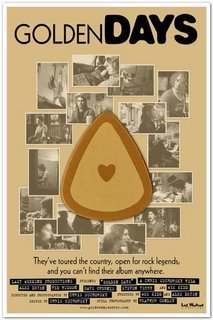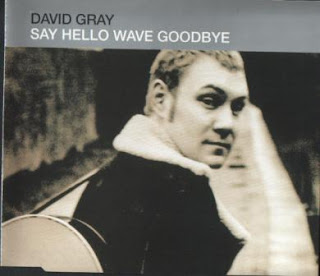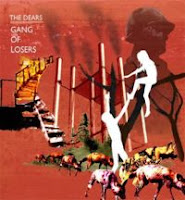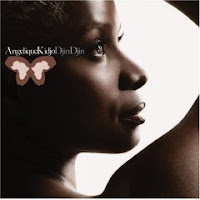Let us go then, you and I / When the evening is spread out against the sky
Saturday afternoons are good for reading and thinking and other literary pursuits.
 This poem resonates with razor-sharp imagery, beautiful self-doubt, and uneasy melancholy. It makes me ache inside and feel a sense of deep beauty all at once, so vivid I can almost taste and smell it. Good poems are like good lyrics and vice versa -- it's amazing what can be done with words in the hands of a true master. If I were a musician and could write a single lyric half as good as this poem, I would hang up my guitar and die a happy woman.
This poem resonates with razor-sharp imagery, beautiful self-doubt, and uneasy melancholy. It makes me ache inside and feel a sense of deep beauty all at once, so vivid I can almost taste and smell it. Good poems are like good lyrics and vice versa -- it's amazing what can be done with words in the hands of a true master. If I were a musician and could write a single lyric half as good as this poem, I would hang up my guitar and die a happy woman. The Love Song Of J. Alfred Prufrock - read by T.S. Eliot
from Prufrock and Other Observations. 1917
by T.S. Eliot (1888–1965)
S’io credesse che mia risposta fosse
A persona che mai tornasse al mondo,
Questa fiamma staria senza piu scosse.
Ma perciocche giammai di questo fondo
Non torno vivo alcun, s’i’odo il vero,
Senza tema d’infamia ti rispondo.
When the evening is spread out against the sky
Like a patient etherised upon a table;
Let us go, through certain half-deserted streets,
The muttering retreats
Of restless nights in one-night cheap hotels
And sawdust restaurants with oyster-shells:
Streets that follow like a tedious argument
Of insidious intent
To lead you to an overwhelming question …
Oh, do not ask, “What is it?”
Let us go and make our visit.
In the room the women come and go
Talking of Michelangelo.
The yellow fog that rubs its back upon the window-panes,
The yellow smoke that rubs its muzzle on the window-panes
Licked its tongue into the corners of the evening,
Lingered upon the pools that stand in drains,
Let fall upon its back the soot that falls from chimneys,
Slipped by the terrace, made a sudden leap,
And seeing that it was a soft October night,
Curled once about the house, and fell asleep.
And indeed there will be time
For the yellow smoke that slides along the street,
Rubbing its back upon the window-panes;
There will be time, there will be time
To prepare a face to meet the faces that you meet;
There will be time to murder and create,
And time for all the works and days of hands
That lift and drop a question on your plate;
Time for you and time for me,
And time yet for a hundred indecisions,
And for a hundred visions and revisions,
Before the taking of a toast and tea.
In the room the women come and go
Talking of Michelangelo.
And indeed there will be time
To wonder, “Do I dare?” and, “Do I dare?”
Time to turn back and descend the stair,
With a bald spot in the middle of my hair—
[They will say: “How his hair is growing thin!”]
My morning coat, my collar mounting firmly to the chin,
My necktie rich and modest, but asserted by a simple pin—
[They will say: “But how his arms and legs are thin!”]
Do I dare
Disturb the universe?
In a minute there is time
For decisions and revisions which a minute will reverse.
For I have known them all already, known them all:—
Have known the evenings, mornings, afternoons,
I have measured out my life with coffee spoons;
I know the voices dying with a dying fall
Beneath the music from a farther room.
So how should I presume?
And I have known the eyes already, known them all—
The eyes that fix you in a formulated phrase,
And when I am formulated, sprawling on a pin,
When I am pinned and wriggling on the wall,
Then how should I begin
To spit out all the butt-ends of my days and ways?
And how should I presume?
And I have known the arms already, known them all—
Arms that are braceleted and white and bare
[But in the lamplight, downed with light brown hair!]
It is perfume from a dress
That makes me so digress?
Arms that lie along a table, or wrap about a shawl.
And should I then presume?
And how should I begin?
. . . . .
Shall I say, I have gone at dusk through narrow streets
And watched the smoke that rises from the pipes
Of lonely men in shirt-sleeves, leaning out of windows?…
I should have been a pair of ragged claws
Scuttling across the floors of silent seas.
. . . . .
And the afternoon, the evening, sleeps so peacefully!
Smoothed by long fingers,
Asleep … tired … or it malingers,
Stretched on the floor, here beside you and me.
Should I, after tea and cakes and ices,
Have the strength to force the moment to its crisis?
But though I have wept and fasted, wept and prayed,
Though I have seen my head [grown slightly bald] brought in upon a platter,
I am no prophet—and here’s no great matter;
I have seen the moment of my greatness flicker,
And I have seen the eternal Footman hold my coat, and snicker,
And in short, I was afraid.
And would it have been worth it, after all,
After the cups, the marmalade, the tea,
Among the porcelain, among some talk of you and me,
Would it have been worth while,
To have bitten off the matter with a smile,
To have squeezed the universe into a ball
To roll it toward some overwhelming question,
To say: “I am Lazarus, come from the dead,
Come back to tell you all, I shall tell you all”—
If one, settling a pillow by her head,
Should say: “That is not what I meant at all.
That is not it, at all.”
And would it have been worth it, after all,
Would it have been worth while,
After the sunsets and the dooryards and the sprinkled streets,
After the novels, after the teacups, after the skirts that trail along the floor—
And this, and so much more?—
It is impossible to say just what I mean!
But as if a magic lantern threw the nerves in patterns on a screen:
Would it have been worth while
If one, settling a pillow or throwing off a shawl,
And turning toward the window, should say:
“That is not it at all,
That is not what I meant, at all.”
. . . . .
No! I am not Prince Hamlet, nor was meant to be;
Am an attendant lord, one that will do
To swell a progress, start a scene or two,
Advise the prince; no doubt, an easy tool,
Deferential, glad to be of use,
Politic, cautious, and meticulous;
Full of high sentence, but a bit obtuse;
At times, indeed, almost ridiculous—
Almost, at times, the Fool.
I grow old … I grow old …
I shall wear the bottoms of my trousers rolled.
Shall I part my hair behind? Do I dare to eat a peach?
I shall wear white flannel trousers, and walk upon the beach.
I have heard the mermaids singing, each to each.
I do not think that they will sing to me.
I have seen them riding seaward on the waves
Combing the white hair of the waves blown back
When the wind blows the water white and black.
We have lingered in the chambers of the sea
By sea-girls wreathed with seaweed red and brown
Till human voices wake us, and we drown.
Labels: poems


 Ryan's just announced a show on May 16th at the Ulster Performing Arts Center in Kingston, New York. Presale for the in-crowd starts tomorrow and you can
Ryan's just announced a show on May 16th at the Ulster Performing Arts Center in Kingston, New York. Presale for the in-crowd starts tomorrow and you can 



 Even though Lowery's been singin that tune for the better part of 15 years, he puts his heart and soul into it, even though his eyes stay closed for most of the set. He occasionally would take a glance down at the crowd, coolly, inquisitively. He still looks the rocker part, with his skinny jeans (before they were cool again), his Sauconys, and his three-day bronze stubble -- as he goes to town on the guitar with all he's got. Still the same wonderfully gravelly voice, a distinct great in rock music.
Even though Lowery's been singin that tune for the better part of 15 years, he puts his heart and soul into it, even though his eyes stay closed for most of the set. He occasionally would take a glance down at the crowd, coolly, inquisitively. He still looks the rocker part, with his skinny jeans (before they were cool again), his Sauconys, and his three-day bronze stubble -- as he goes to town on the guitar with all he's got. Still the same wonderfully gravelly voice, a distinct great in rock music.





 BLACK CROWES @ THE FILLMORE
BLACK CROWES @ THE FILLMORE






 [
[



 Malin is an underrated, old school player who is finally getting recognized as one of New York's great hometown voices.
Malin is an underrated, old school player who is finally getting recognized as one of New York's great hometown voices.


 sid is funnier
sid is funnier simon is undead
simon is undead


 I had posted a Basketball-Diaries-esque picture here of the needle running into my arm (the nurse Mr. Christian snapped it for me of his own volition) but I took it down because it even made ME shudder and it was MY arm. Even though I do always watch the needle go in, and ask a lot of medical questions. It's really just in case I ever run into Dr. John Carter/Dr. Doug Ross on an elevator and need to sound knowledgable.
I had posted a Basketball-Diaries-esque picture here of the needle running into my arm (the nurse Mr. Christian snapped it for me of his own volition) but I took it down because it even made ME shudder and it was MY arm. Even though I do always watch the needle go in, and ask a lot of medical questions. It's really just in case I ever run into Dr. John Carter/Dr. Doug Ross on an elevator and need to sound knowledgable. 



 I was enjoying Japanese food a few nights ago with some good people, and yummy as it was, midway through my udon and sake I had a sudden void open up within my soul for some Wagamama.
I was enjoying Japanese food a few nights ago with some good people, and yummy as it was, midway through my udon and sake I had a sudden void open up within my soul for some Wagamama.




 Admittedly I have been on something of an R.E.M. kick lately, but this one just popped up on my iPod on random out of the 11,000. Michael Stipe says at the beginning that (out of all the fine offerings from their 20+ year career), this is his "particular favorite R.E.M. song" -- it's easy here to see why. Gorgeous. I love the opportunity that solitude affords to really *listen* to a song, and I couldn't help but think as this one played (a few times on loop) how a song like this is a perfection example of Stipe's cryptic lyricism; the juxtaposition of the seemingly meaningless alongside the profound.
Admittedly I have been on something of an R.E.M. kick lately, but this one just popped up on my iPod on random out of the 11,000. Michael Stipe says at the beginning that (out of all the fine offerings from their 20+ year career), this is his "particular favorite R.E.M. song" -- it's easy here to see why. Gorgeous. I love the opportunity that solitude affords to really *listen* to a song, and I couldn't help but think as this one played (a few times on loop) how a song like this is a perfection example of Stipe's cryptic lyricism; the juxtaposition of the seemingly meaningless alongside the profound.


